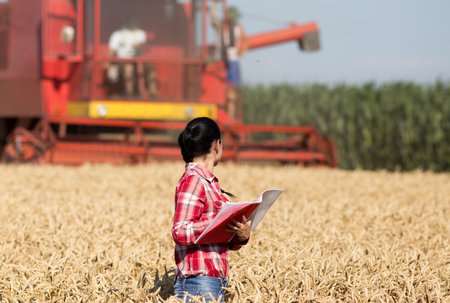The Ottawa Valley Seed Growers Association recognizes contributions of young agriculture enthusiasts
By Jennifer Jackson
Encouraging young adults to enter the agricultural industry is crucial to the industry’s growth, according to many industry organizations and representatives. The Ottawa Valley Seed Growers Association (OVSGA) could not agree more with the statement and is providing a $2,500 scholarship to an agriculture student.
The bursary recipient should be planning to pursue a career in agriculture and needs to be enrolled in their second year of any post-secondary university or college program.
The OVSGA will also consider community involvement when selecting its scholarship recipient.
“Whether it’s 4-H, Junior Farmers of Ontario, or your local agriculture organization – even your local youth or church groups – we want this person to demonstrate his/her involvement in the community,” says Arlene Ross, secretary-treasurer for the OVSGA.
The OVSGA will consider students with a wide array of involvement with agriculture, not just on-farm students, according to Ross.
“We want to see agriculture continue to be strong, particularly here in eastern Ontario, and we recognize that our youth are the ag of the future,” she says. “We need to do everything that we can to support our industry.”
Andrew Bunda, president of the Carleton County Junior Farmers Association, graduated from the University of Guelph in 2014 with a similar bursary.
“I put the funds received from the bursary towards textbooks and tuition,” said Bunda. “It was an encouraging reminder that your decision to go to university for ag studies is recognized and appreciated by agricultural organizations from back home.
“Having a scholarship that caters to the youth of eastern Ontario that are seeking an education in ag studies is something that should help alleviate the financial burden of students and encourage more young farmers to take the path of agricultural studies.”

Jevtic/iStock/GettyImagesPlus
In the past, the OVSGA provided student bursaries to both Kemptville College and Alfred College, Ottawa-area agricultural satellite campuses of the University of Guelph. In 2014, the University confirmed the schools were to close. The class of 2015 was the final class to graduate from these campuses.
“We recognized with the closing of these colleges, there was still an opportunity for eastern Ontario youth in their educational programs, wherever they should choose to go,” says Ross. As the OVSGA could no longer offer the bursaries for Kemptville and Alfred Colleges, “we wanted to find a way to support our young people.”
This support is needed for the future of the industry, says Bunda.
"It is important to fund ag-education because the ag industry is continually evolving, faster now than ever before, and learning from only first hand on-farm work experience is not enough anymore,” he says. “The more educated people in the industry can be, whether from workshops or post-secondary education, the more prepared they will be to understand and handle the next challenge that they will face."
The OVSGA will be accepting applications until June 30, 2017. Students can find applications at the Ottawa Valley Farm Show website or in person at the event itself.
The OVSGA sponsored Ottawa Valley Farm Show will take place March 14 to 16, 2017, at the EY Centre in Ottawa.